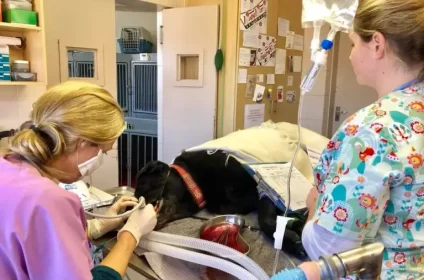As a first-time pet owner, understanding and managing your pet’s behavior is an essential part of responsible pet ownership. Here’s what you need to know:
- Species-Specific Behavior: Different types of pets have unique behaviors. Cats and dogs, for instance, express themselves differently. Take the time to understand the behaviors typical for your specific pet.
- Early Socialization: Early socialization is crucial, particularly for puppies and kittens. Properly socialized pets tend to be more well-adjusted and adaptable. Introduce your pet to various people, animals, and environments during their early development.
- Training is Key: Training is a critical aspect of managing pet behavior. Basic commands like “sit,” “stay,” and “come” help set boundaries and ensure safety. Positive reinforcement training methods are effective and humane.
- Consistency Matters: Consistency is essential when it comes to behavior expectations. Establish clear rules and enforce them consistently. All family members should follow the same guidelines to avoid confusion for your pet.
- Reading Body Language: Learn to interpret your pet’s body language. Happy and relaxed pets display different cues than those who are anxious or fearful. Understanding their signals can help you respond appropriately.
- Behavior Challenges: Be prepared to address behavior issues like house soiling, chewing, or aggression. Seek professional help if needed, and avoid using punitive measures.
- Exercise and Mental Stimulation: Both dogs and cats require physical exercise and mental stimulation. Regular playtime, walks, and interactive toys are essential to prevent boredom and destructive behavior.
- Affection and Attention: Your pet needs love and attention. Spending quality time with them strengthens your bond and addresses their emotional needs.
- Stress and Anxiety: Pets can experience stress and anxiety, especially in new or unfamiliar environments. Be patient and provide a safe, comforting space for your pet to adjust.
- Veterinary Support: If you notice sudden changes in your pet’s behavior, consult with a veterinarian. Underlying health issues can sometimes manifest as behavior problems.
Understanding and managing your pet’s behavior will lead to a happier and more fulfilling relationship with your furry friend. It’s an essential part of being a responsible pet owner.



















